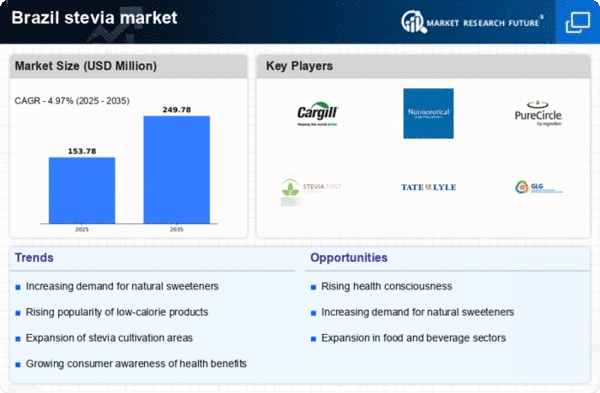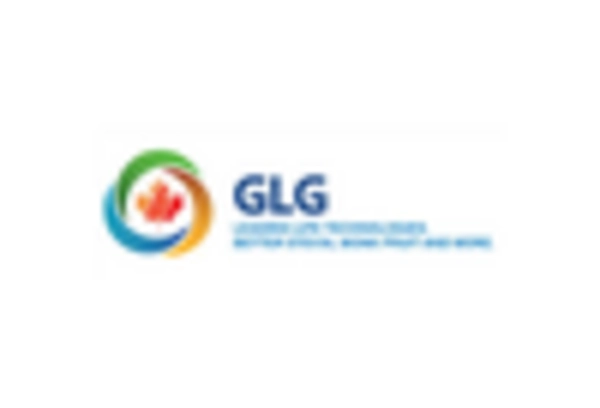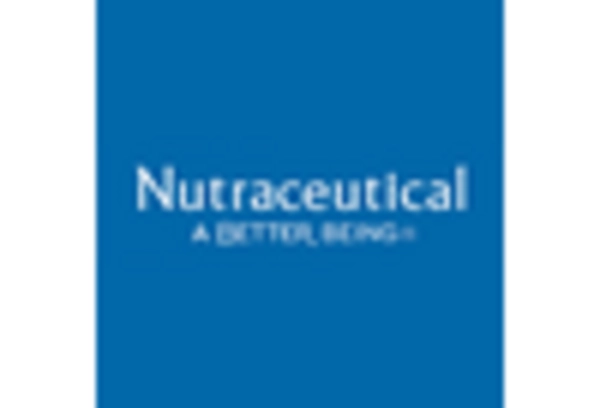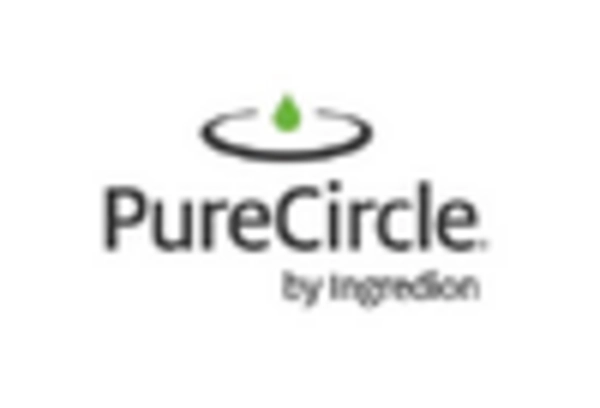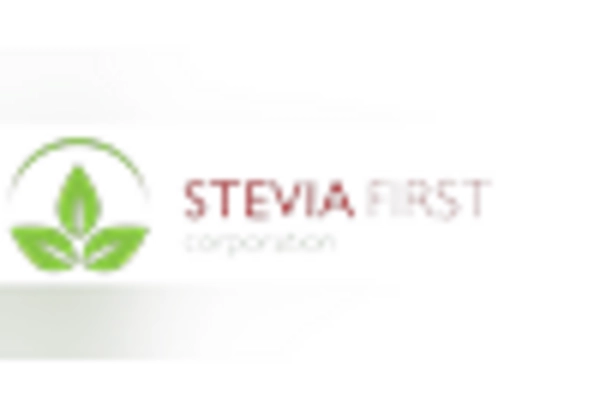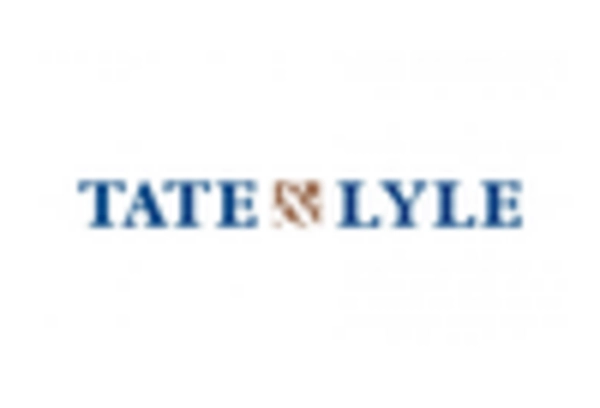Supportive Regulatory Environment
A supportive regulatory environment is fostering growth in the stevia market in Brazil. The Brazilian government has implemented regulations that encourage the use of natural sweeteners, including stevia, in food and beverage products. This regulatory support not only facilitates market entry for new products but also enhances consumer confidence in the safety and efficacy of stevia. Recent data indicates that the approval of new stevia formulations has increased by 25% in the past year, reflecting the government's commitment to promoting healthier food options. As regulations continue to evolve, the stevia market is likely to benefit from increased product availability and consumer acceptance.
Innovations in Product Development
Innovative product development is significantly influencing the stevia market in Brazil. Manufacturers are increasingly formulating new products that incorporate stevia as a key ingredient, catering to diverse consumer preferences. For instance, the introduction of stevia-sweetened beverages and snacks has gained traction, appealing to those seeking healthier options. Market data suggests that the introduction of innovative stevia products has contributed to a 20% increase in market share within the food and beverage sector. This trend indicates that companies are recognizing the potential of stevia to enhance product offerings while meeting consumer demands for lower-calorie and natural alternatives. As innovation continues, the stevia market is poised for further expansion.
Growing Awareness of Health Benefits
The growing awareness of the health benefits associated with stevia is a crucial driver for the stevia market in Brazil. Consumers are increasingly informed about the advantages of using stevia, such as its zero-calorie content and potential to aid in weight management. This awareness is supported by various health organizations promoting natural sweeteners as safer alternatives to sugar. Consequently, the stevia market is witnessing a steady increase in adoption rates, with estimates suggesting a growth of around 10% in consumer usage over the last year. As more individuals prioritize their health and wellness, the demand for stevia products is expected to rise, further solidifying its position in the Brazilian market.
Rising Demand for Natural Sweeteners
The increasing consumer preference for natural sweeteners is a pivotal driver in the stevia market. In Brazil, health-conscious individuals are actively seeking alternatives to sugar and artificial sweeteners, which has led to a notable rise in the demand for stevia-based products. This shift is reflected in market data, indicating that the consumption of stevia has surged by approximately 15% annually over the past few years. As consumers become more aware of the health implications associated with excessive sugar intake, the stevia market is likely to experience sustained growth. Furthermore, the trend towards clean label products, which emphasize transparency and natural ingredients, further supports the expansion of the stevia market in Brazil.
Sustainability Trends in Agriculture
Sustainability trends in agriculture are emerging as a significant driver for the stevia market in Brazil. As consumers become more environmentally conscious, there is a growing demand for sustainably sourced ingredients, including stevia. The cultivation of stevia is often associated with lower environmental impact compared to traditional sugarcane farming, making it an attractive option for eco-conscious consumers. Market data suggests that the demand for sustainably produced stevia has increased by approximately 30% in recent years. This trend not only aligns with consumer preferences but also encourages agricultural practices that promote biodiversity and reduce carbon footprints. Consequently, the stevia market is likely to thrive as sustainability becomes a central theme in food production.


